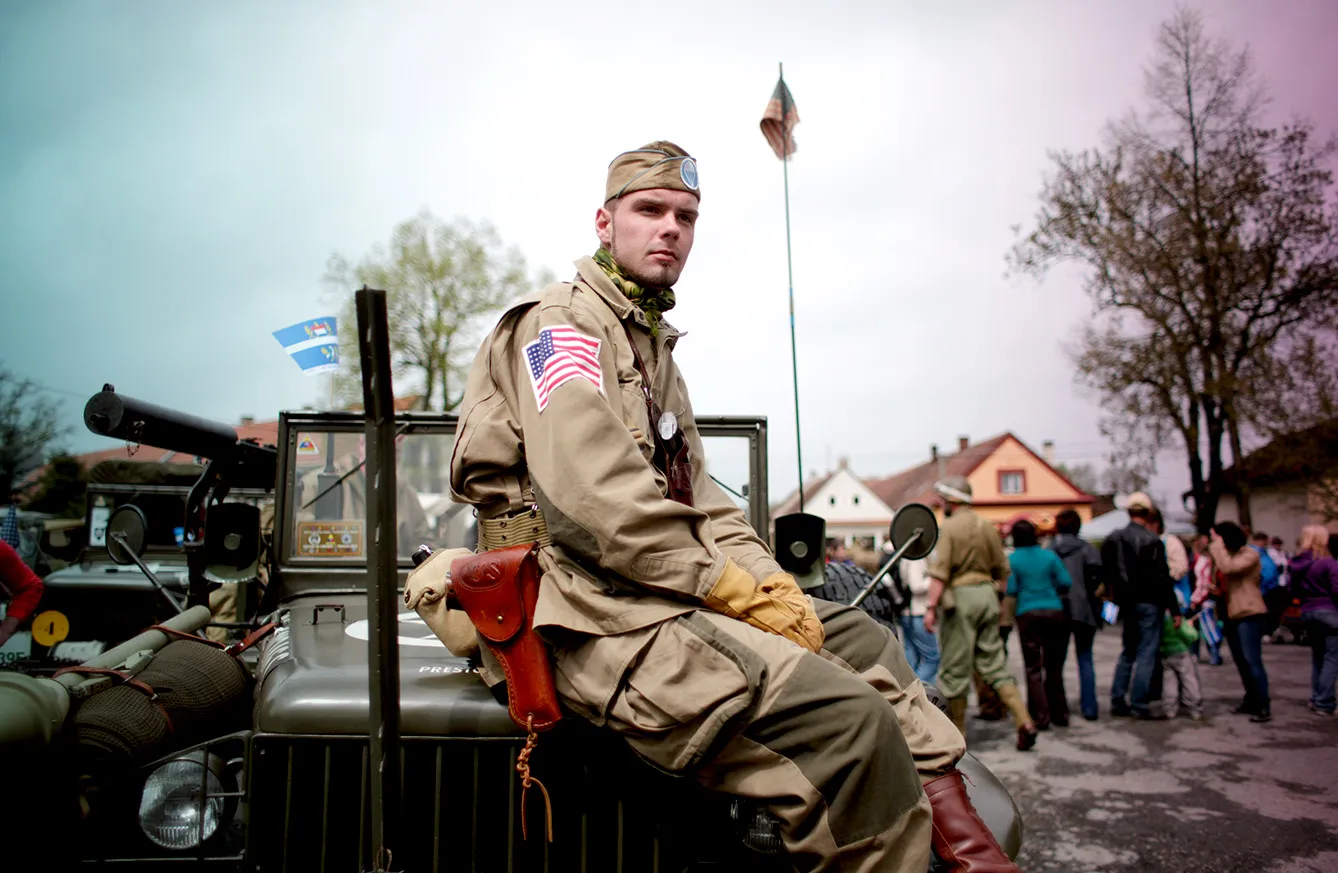Plzeň, or Pilsen, is a picturesque medium-sized town in West Bohemia. It is home to the world’s first Pilsner beer, created there in 1842. Pilsen is the name of 70% of the beers sold today. In addition to beer, Pilsen is also the home of Spejbl and Hurvínek, the famous Czech puppets.
During the Second World War, Pilsen, like all Czech cities, was occupied by German Nazi troops. Due to its enormous manufacturing potential, the city was bombed several times during the war. During 1944 and 1945, British and American bombers tried to slow down Pilsen’s industry, which unwillingly had to produce military material for the Nazis.
US boots in Bohemia
In May 1945, the first American troops entered Czechoslovakia. These were members of the Third American Army, which had been fighting through France and Germany since the Normandy landings on 6 June 1944. But the Americans were not the only ones operating in Czechoslovakia. Soviet troops were at that time fighting the last organized Nazi units near Pelhřimov.
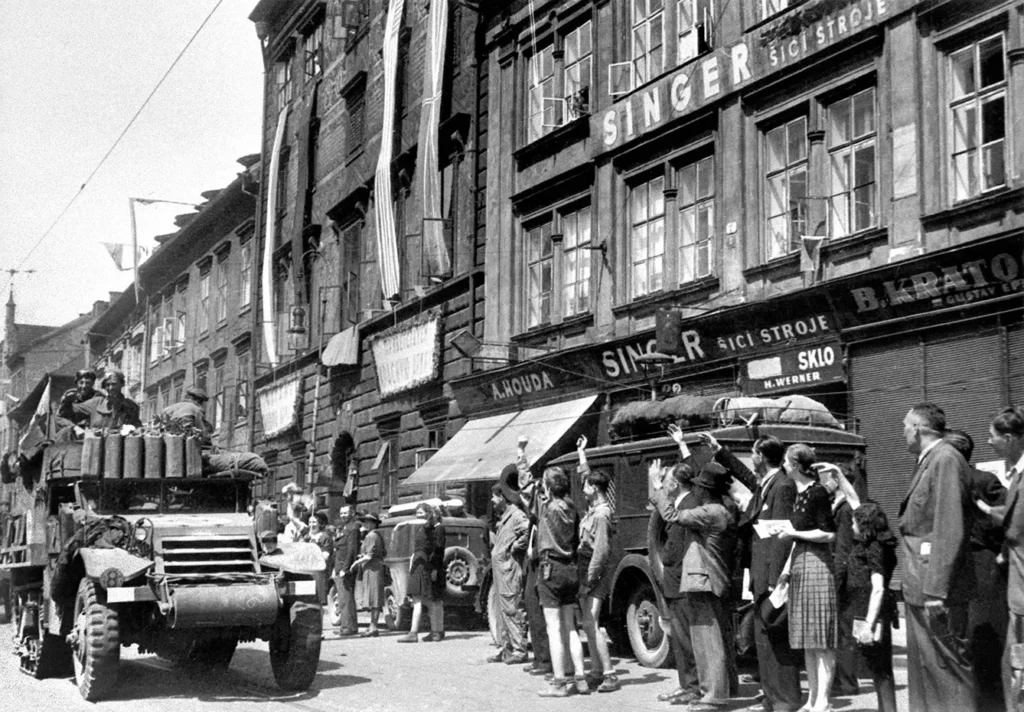
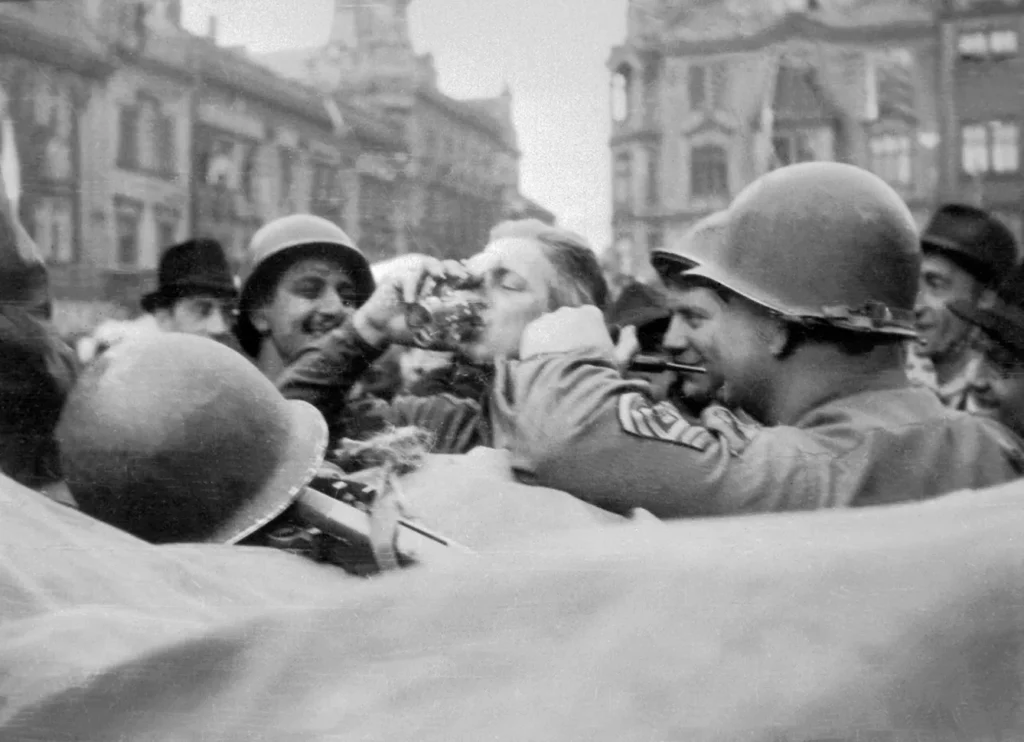
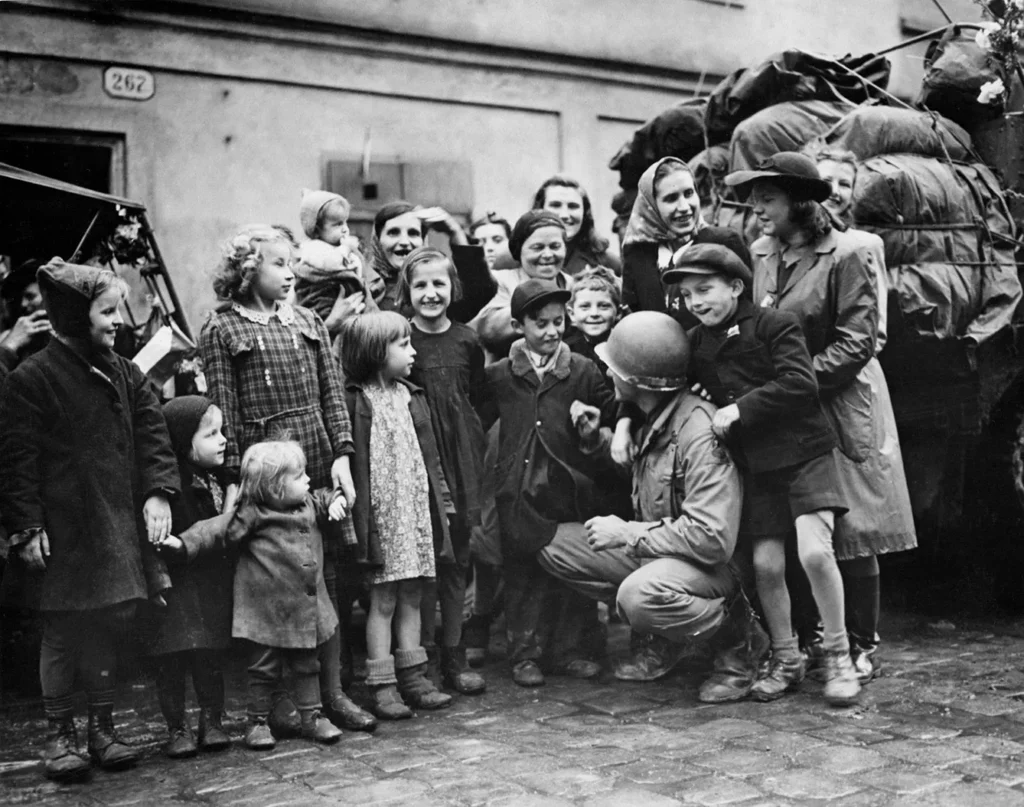
Then, on the morning of 6 May 1945, the Americans liberated the first major Czech city: Plzeň. After a short street fight, they declared the city liberated without significant losses. Tens of thousands of people immediately flooded the streets, carrying flags of the Stars and Stripes to celebrate their newfound freedom.
The line of doom
Unfortunately, the advance of the American troops was halted not very far from Pilsen near Rokycany. Even though the Americans would have reached Prague before the Soviets, they were prohibited from doing so. The reason for this halt was the so-called Demarcation line. This was an agreement between the Allies and the Soviet Union to redraw the post-war spheres of influence.
The Soviets considered Czechoslovakia to be their sphere of influence, and American tanks in Prague would only complicate the post-war Communist plans that had been devised for Czechoslovakia.
The Americans thus met the Soviets symbolically in Rokycany to shake hands and have their photographs taken together. It was similar to the famous American-Soviet meeting on the Elbe River in Torgau. But this was already the last act of world cooperation and the precursor to the Cold War.
Forbidden celebrations
To this day, Pilsen remains a city that remembers its American liberators often and fondly. And no wonder. American troops stayed in Pilsen for quite some time after the war. The last American soldiers left on 1 December 1945. Pilseners thus experienced a true Independence Day or Thanksgiving celebrations. Just as the welcome to the American troops was joyful, the farewell was sad and heartbreaking. A large military parade was held in Pilsen’s Republic Square, attended by Czechoslovak Foreign Minister Jan Masaryk and Minister of National Defense Ludvík Svoboda.
But any comments and reminders about the Americans were soon put to rest. When Communists seized power in 1948, talk of Americans was strictly forbidden. The new doctrine, also taught in schools, was that the Red Army had liberated the entire territory of Czechoslovakia. But Pilseners still secretly commemorated the anniversary of American liberation.
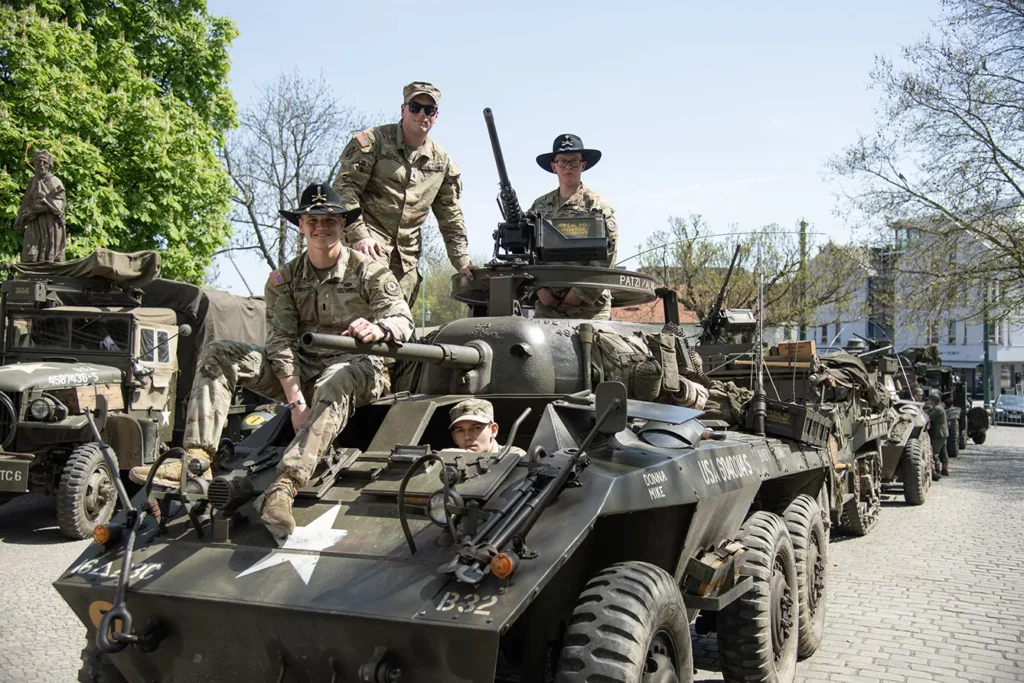
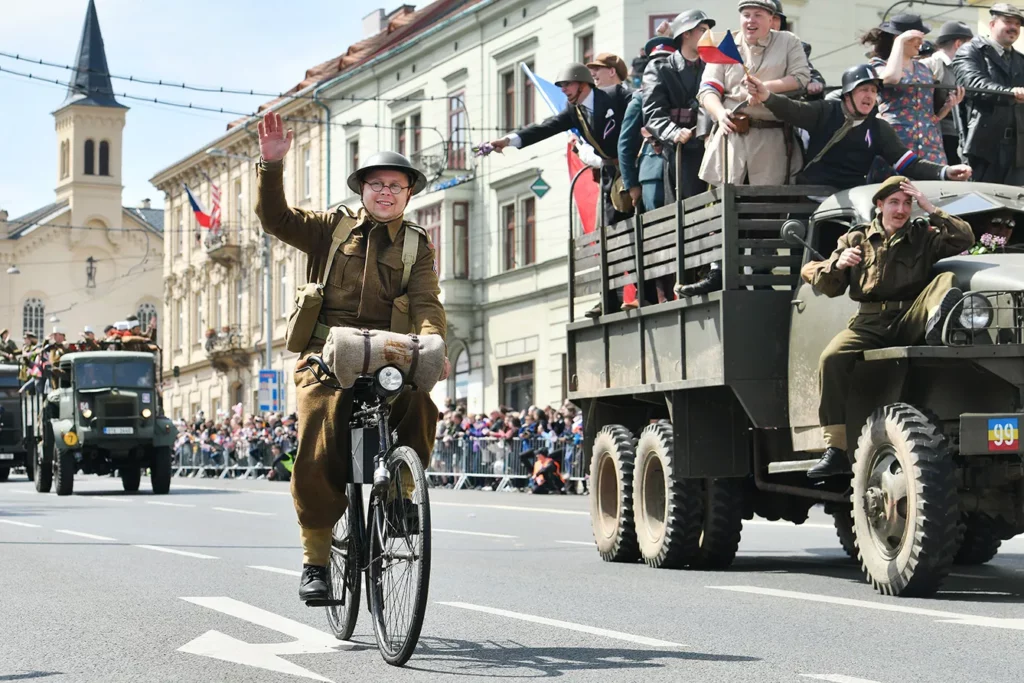
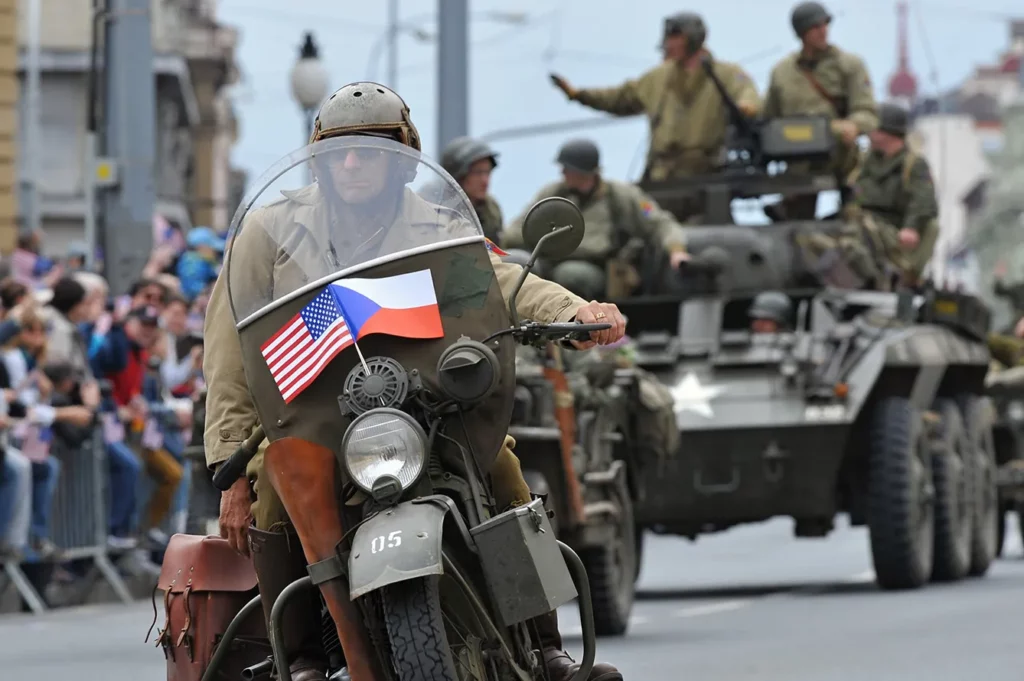
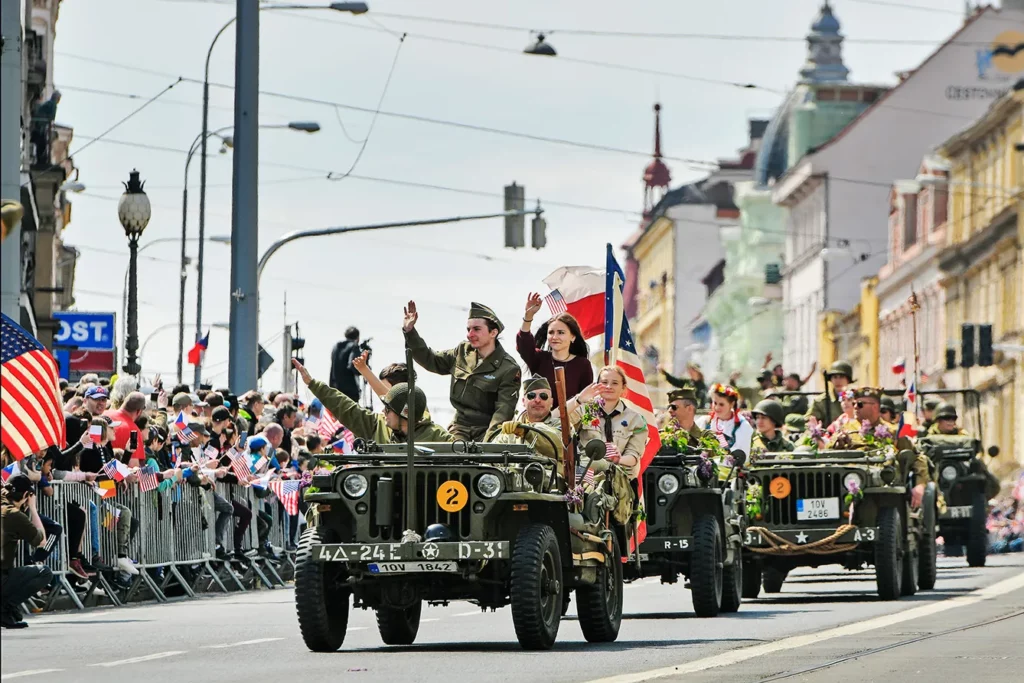
(Top right) The four-day Freedom Festival, the largest celebration of the end of World War II in the Czech Republic. Photo: PAP / CTK / Miroslav Chaloupka; (Bottom left) The Convoy of Liberty, watched by thousand of people with U.S., Czech and Belgian flags, was today the apex of the weekend of the Liberty Festival celebrating Victory in the town of Pilsen, Czech Republic, May 3, 2015. Photo: PAP / CTK / Pavel Nemecek; (Bottom right) Tens of thousands of people from the Czech Republic and abroad come to Pilsen every year for the May celebrations to see The Convoy of Liberty. Photo: PAP / CTK / Miroslav Chaloupka
American Pilsen
And what about the Pilsen of today? Does it remember its liberation? You bet your pants on that! Throughout the city, roughly ten monuments and plaques commemorating the critical liberation.
The largest monument is “Thank you, America!” with two columns. One bears a Czech Lion, and the other an American Eagle. They bear the text: “On May 6, 1945, The City of Pilsen was Liberated by the U.S. Army” in both languages. Behind these magnificent columns, Czech and American flags fly side by side.
On top of that, the so-called Convoy of Liberty passes through the city every year during the Celebration of Freedom Festival. It includes historical and contemporary American military equipment. It is attended by Pilsen residents, history and U.S. enthusiasts from all over the country, and Veterans who participated in the liberation of Pilsen in 1945. The American Ambassador launches this important event annually, and its grand finale is a flyover by U.S. Air Force fighter jets.
For all these reasons, Pilsen is still considered the capital of the USA in the Czech Republic.


